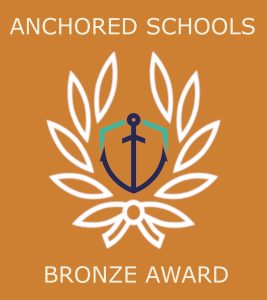 Aspire strives to ensure every student is safe and protected from harm. Aspire believes this is a shared responsibility, reliant upon effective collaborative working between agencies and professionals. Aspire Academy has a strong pastoral ethos and this helps to ensure that students are supported, cared for, and listened to. Aspire fully recognises the contribution it can make to protect children from harm and supporting other agencies in doing so; promoting the welfare of all.
Aspire strives to ensure every student is safe and protected from harm. Aspire believes this is a shared responsibility, reliant upon effective collaborative working between agencies and professionals. Aspire Academy has a strong pastoral ethos and this helps to ensure that students are supported, cared for, and listened to. Aspire fully recognises the contribution it can make to protect children from harm and supporting other agencies in doing so; promoting the welfare of all.
The focus of Safeguarding within Aspire is prevention, protection and support. Aspire recognises that children sometimes suffer abuse from those responsible for caring and protecting them. Abuse can take place within any socio-economic group, it can occur at home or within institutions such as schools. It can also occur between peer groups. We also recognise that some social groups are more at risk from home, including those with Special Educational Needs and from who are LGBTQ+.
As an Academy, we follow all statutory guidance:
Keeping Children Safe in Education 2024
When new staff, volunteers or regular visitors join our Academy they will be informed of the safeguarding arrangements in place and appropriate checks carried out.
All new appointments are made with a member of staff certified by the DfE in ‘Safer Recruitment in Education’. Every new member of staff or volunteer will have an induction period including the training in essential safeguarding information. This includes statutory training on Prevent, FGM, Forced Marriage and CSE as well as comprehensive training around signs and symptoms of abuse.
All regular visitors and volunteers to Aspire are told where our policy can be accessed. They are provided with a set of safeguarding procedures. This policy is referred to in our Academy prospectus and parents are reminded about it through Academy communications. The policy is revisited and updated and amended when necessary. Key aspects of this are also featured on visitor fobs.
When new students join our school, all parents and carers are informed that we have a safeguarding policy. This is available as a hard copy to parents should they request a copy. You can request a hard copy by contacting Claire Boyton or Maxine Lane at Aspire. An electronic copy can be found in ‘About’, under ‘Academy Policies’.
Throughout their time at the Academy, students are supported in keeping themselves safe in a number of ways, including by their tutor, by Student Liaison Officers and teaching / support staff. Students also have access to a Mental Health Nurse and four qualified ELSA staff. Students know who they can talk to and regularly seek out support when needed. Many external agencies also support our students and visit them regularly in the Academy.
The Children’s Act 1989, section 27 and 47, and the Children’s Act 2004 state that: it is the duty of the schools to act “…to safeguard and promote the welfare of children who are in need”.
Safeguarding and promoting the welfare of children is defined as: ‘Protecting children from maltreatment, preventing impairment of children’s health and development, ensuring that children are growing up in circumstances consistent with the provision of safe and effective care and undertaking this role so as to enable those children to have optimum life chances and to enter adulthood successfully.’
Effective child protection is essential to safeguard and promote the welfare of children. All agencies should aim to proactively safeguard and promote the welfare of children so that the need for action to protect children from harm is reduced.
The school is committed to promoting the safety and wellbeing of all students. We achieve this through putting in place robust systems and procedures to manage any concerns reported. We respond immediately to any concerns raised and ensure that these are dealt with appropriately, sensitively and in a timely manner.
Our PSHE programme covers sexual harassment and sexual violence and we have additional whole-school activities and enrichment sessions focused around these topics. We believe education, alongside dealing with incidents robustly, are critical in tackling these issues.
Students, parents and / or carers can report concerns by contacting a member of staff:
Claire Boyton, Designated Safeguarding Lead (DSL),
can be contacted by either calling Aspire Academy directly or by emailing c.boyton@asp.hslt.academy
Where there are concerns for the welfare of a student within the Academy, these must be communicated immediately to the DSL or the deputy. If concerns relate to a child being at risk of significant or immediate harm, the police should be called on 999.
If the Designated Safeguarding Lead is unavailable concerns must be communicated to Maxine Lane (Deputy Designated Safeguarding Lead) by either calling Aspire Academy directly or by emailing m.lane@asp.hslt.academy.
The NSPCC have set up a dedicated, confidential, helpline available to current or past victims of sexual violence or harassment, as well as parents, carers or professions with concerns.
The dedicated NSPCC helpline number is: 0800 136 663.
CSE occurs when a child or young person or another person, receives ‘something’ (e.g. food, accommodation, drugs, alcohol, cigarettes, affection, gifts, money) as a result of the child or young person performing sexual activities, or another person performs sexual activities on a child or young person.
The presence of any significant indicator for sexual exploitation should trigger a referral to the Children’s Social Care Access & Assessment team.
Significant indicators:
Child criminal exploitation occurs where an individual or group takes advantage of an imbalance of power to coerce, control, manipulate or deceive a child or young person under the age of 18. The victim may have been criminally exploited even if the activity appears consensual. Child Criminal Exploitation does not always involve physical contact; it can also occur through the use of technology. Criminal exploitation of children… includes for instance children forced to work on cannabis farms or to commit theft. It is often linked to County Lines drugs networks and gang activity. The Academy works closely with the police and other external agencies where this is a concern for one of our students
At Aspire Academy we assist our children to become more resilient to the messages of violent extremists through creating an environment where all young people learn to understand others, value and appreciate diversity and develop skills to be able to debate. Through the balanced curriculum we offer we will help young people to learn and explore the values of different faiths in cultures as well as the themes of tolerance and mutual respect.
Where a member of staff has concerns regarding radicalism or extremist behaviour, a cause for concern form should be completed on the academy CPOMS system. Alternatively, the member of staff, or the Child Protection Co-ordinator will refer the concern to Humberside Police. A referral should be emailed to: prevent@humberside.pnn.police.uk.
Academy staff can play an important role in preventing self-harm and also supporting students, peers and parents currently engaging in self-harm.
Any member of staff who is aware of a student engaging in or suspected of being at risk of engaging in self- harm should always consult with the Designated Safeguarding Lead or Deputy. First Aid and emotional support will be offered. Students need to be made aware that it is not possible to offer confidentiality around safeguarding concerns, such as self-harm, and that the promotion of safety for our young people is our primary concern. Where appropriate, we will refer a child into additional services, such as CAMHS.
This is against the law yet for some communities it is considered a religious act and cultural requirement. It is illegal for someone to arrange for a child to go abroad with the intention of having her circumcised. If any of the above areas of concern is brought to the attention of Aspire Academy we will report those concerns to the police immediately.
Children can abuse other children. This is generally referred to as child on child abuse and can take many forms. It can happen both inside and outside of school/college and online. It is most likely to include, but may not be limited to: bullying (including cyberbullying, prejudice-based and discriminatory bullying); abuse in intimate personal relationships between children/young people; physical abuse; sexual violence, such as rape, assault by penetration and sexual assault; sexual harassment; non-consensual sharing of nude and semi-nude images and/or videos; causing someone to engage in sexual activity without consent; upskirting; and initiation/hazing type violence and rituals.
As an Academy, we do not tolerate any form of abuse between students in the Academy. Where this happens, those involved will be dealt with in line with our behaviour policy and victims given appropriate support.
The Designated Safeguarding Lead at Aspire Hull is Claire Boyton (Vice Principal).
Claire Boyton can be contacted by either calling Aspire Academy directly on 01482 318789 or by emailing; c.boyton@asp.hslt.academy
Where there are concerns for the welfare of a student within the Academy, these must be communicated immediately to the DSL or the deputy in their absence. If concerns relate to a child being at risk of significant or immediate harm, the police should be called on 999.
If the Designated Safeguarding Lead is unavailable concerns must be communicated to Maxine Lane (Deputy DSL) on 01482 318789 or by emailing m.lane@asp.hslt.academy
You may also find the following websites useful:
For our Safeguarding Policy please go to our policies page.
